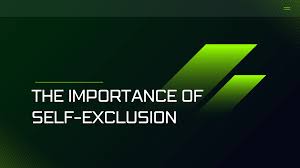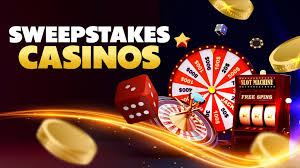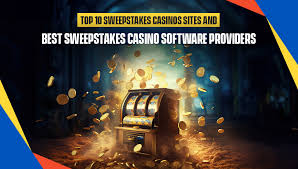Gambling addiction, also known as compulsive gambling or gambling disorder, is a serious condition that affects millions of people worldwide. This comprehensive gambling self-help guide aims to provide you with the tools and knowledge necessary to overcome addiction and reclaim control of your life.
Table of Contents
Definition of gambling addiction
Gambling addiction is characterized by the uncontrollable urge to gamble despite negative consequences. It’s classified as a behavioral addiction, similar to substance abuse disorders, due to its impact on the brain’s reward system.
Signs and symptoms
Common signs of gambling addiction include:
- Preoccupation with gambling
- Needing to gamble with increasing amounts of money
- Unsuccessful attempts to cut back or stop gambling
- Restlessness or irritability when trying to reduce gambling
- Gambling to escape problems or relieve negative emotions
- Chasing losses by continuing to gamble
- Lying to conceal the extent of gambling involvement
- Jeopardizing or losing significant relationships or opportunities due to gambling
The impact on personal life, relationships, and finances
Gambling addiction can have far-reaching consequences, including:
- Financial ruin and debt
- Strained or broken relationships
- Job loss or decreased productivity
- Legal issues
- Mental health problems, including depression and anxiety
- Physical health issues due to stress and neglect of self-care
2. Recognizing the Need for Gambling Self-Help
The first step in recovery is acknowledging that there’s a problem. This section of our gambling self-help guide focuses on recognizing when it’s time to seek help.
Self-assessment tools
Several self-assessment tools can help you determine if you have a gambling problem:
- The Problem Gambling Severity Index (PGSI)
- The South Oaks Gambling Screen (SOGS)
- Gamblers Anonymous 20 Questions
These tools provide a starting point for self-reflection and can indicate whether professional help might be necessary.
Overcoming denial
Denial is a common barrier to seeking help. It’s crucial to honestly evaluate your gambling behavior and its impact on your life. Consider keeping a gambling diary to track your habits, expenses, and emotions related to gambling.
The importance of early intervention
Early intervention in gambling addiction can prevent severe consequences and improve the chances of successful recovery. If you recognize problematic patterns in your gambling behavior, don’t wait for the situation to worsen before seeking help.
3. The Psychology Behind Gambling Addiction
Understanding the psychological factors that contribute to gambling addiction is a crucial part of any gambling self-help program.
Cognitive biases and logical fallacies
Gamblers often fall prey to cognitive biases such as:
- The gambler’s fallacy: believing that past events influence future outcomes in random games
- Illusion of control: overestimating one’s ability to control the outcome of chance-based games
- Confirmation bias: focusing on wins while ignoring or downplaying losses
Recognizing these biases is an important step in changing problematic gambling behaviors.
The role of dopamine and brain chemistry
Gambling triggers the release of dopamine, a neurotransmitter associated with pleasure and reward. Over time, the brain becomes accustomed to these dopamine surges, leading to addiction. Understanding this biological process can help in developing strategies to combat cravings.
Identifying personal triggers
Common triggers for gambling urges include:
- Stress or emotional distress
- Financial pressures
- Boredom
- Alcohol or drug use
- Certain locations or social situations
Identifying your personal triggers is a crucial step in developing effective gambling self-help strategies.
4. Step-by-Step Gambling Self-Help Strategies
This section outlines practical steps you can take to address your gambling addiction.
Setting realistic goals for recovery
Start by setting SMART goals:
- Specific
- Measurable
- Achievable
- Relevant
- Time-bound
For example: “I will not gamble for the next 30 days and will attend two support group meetings each week.”
Creating a personalized action plan
Develop a structured plan that includes:
- Strategies for avoiding gambling triggers
- Alternative activities to replace gambling
- A support network of friends, family, or professionals
- Financial management steps
- Self-care practices
Developing healthy coping mechanisms
Replace gambling with healthier ways to manage stress and emotions:
- Exercise
- Meditation or mindfulness practices
- Creative hobbies
- Volunteering
- Spending time in nature
5. Financial Recovery and Management
Addressing the financial impact of gambling is a crucial part of the recovery process.
Assessing gambling-related debts
Start by making a comprehensive list of all gambling-related debts. This may be challenging, but it’s necessary for creating a realistic financial recovery plan.
Creating a budget and financial plan
Develop a budget that prioritizes essential expenses and debt repayment. Consider using budgeting apps or spreadsheets to track your spending and savings.
Seeking professional financial advice
A financial advisor or credit counselor can provide valuable guidance on managing debts, improving credit scores, and developing long-term financial stability.
6. Building a Support Network
Recovery from gambling addiction is not a solitary journey. Building a strong support network is essential for long-term success.
The role of family and friends in recovery
Open communication with loved ones about your addiction and recovery process can provide emotional support and accountability. Consider involving them in your recovery plan.
Finding and joining support groups
Support groups like Gamblers Anonymous offer a community of people who understand your struggles. These groups provide a safe space to share experiences and learn from others in recovery.
When to consider professional therapy
Professional therapists, particularly those specializing in addiction, can provide valuable tools and strategies for managing gambling urges and addressing underlying issues that may contribute to addiction.
7. Technology and Tools for Gambling Self-Help
In today’s digital age, various technological solutions can aid in gambling addiction recovery.
Apps and software for tracking progress
Several apps are designed to help track gambling-free days, manage finances, and provide motivation. Examples include:
- Gambling Therapy
- Quit Gambling
- I Am Sober
Online resources and forums
Websites and forums dedicated to gambling addiction recovery can provide information, support, and a sense of community. Some reputable resources include:
- GamTalk
- Gambling Therapy
- Smart Recovery Online
Self-exclusion programs and blocking software
Many online gambling sites offer self-exclusion options. Additionally, software like Gamban or Betfilter can block access to gambling sites across all your devices.
8. Maintaining Long-Term Recovery
Recovery from gambling addiction is an ongoing process. This section focuses on strategies for maintaining long-term success.
Developing new hobbies and interests
Replacing gambling with fulfilling activities is crucial for long-term recovery. Consider exploring new hobbies or rekindling old interests that don’t involve gambling.
Strategies for relapse prevention
Develop a relapse prevention plan that includes:
- Identifying high-risk situations
- Strategies for managing cravings
- A list of supportive people to contact when needed
- Positive self-talk and affirmations
Celebrating milestones and progress
Acknowledge and celebrate your achievements in recovery, no matter how small. This can help maintain motivation and reinforce the benefits of a gambling-free life.
9. Conclusion: Embracing a Gambling-Free Life
Recovery from gambling addiction is challenging, but with the right tools and support, it’s entirely possible. This gambling self-help guide has provided a comprehensive overview of strategies and resources to help you on your journey to recovery.
Remember, seeking help is a sign of strength, not weakness. Whether you’re just starting your recovery journey or looking to reinforce your commitment to a gambling-free life, there are always resources and support available.
By implementing the strategies outlined in this guide, developing a strong support network, and committing to your recovery, you can overcome gambling addiction and build a healthier, more fulfilling life.
Remember, recovery is a process, and every step forward is a victory. Stay committed to your gambling self-help journey, and don’t hesitate to seek additional support when needed. Your future self will thank you for the courage and determination you’re showing today.
Author: Cosmas Mwirigi
Cosmas Mwirigi is an established freelance writer with over five years of experience and the founder of Skalemoney.com. Cosmas Mwirigi has been published on PV-Magazine, Slidebean, Bridge Global, Casinos.com, Gambling.com, and Reverbico among many other websites.
Cosmas Mwirigi is an expert writer in iGaming, B2B, SaaS, Finance, digital marketing and Solar renewable energy. To contact him for his services, connect with him on his LinkedIn
![]()




